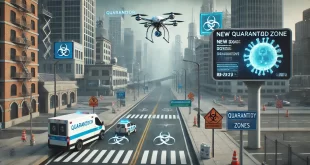Despite the proven effectiveness of early warning early action in reducing disaster impacts and saving lives, around one-third of the global population is still not covered by early warning systems. Furthermore, research indicates that even when information reaches at-risk communities, it is often not properly perceived or acted upon to mitigate risks.
Communication barriers, social and cultural stigma, lack of accessibility of infrastructure, and the absence of effective social safety nets continue to prevent communities from accessing timely early warning and risk information. These obstacles disproportionately affect marginalized and minority groups, making it even more difficult for them to access and act on early warning information. These groups are often referred to as “last mile communities,” as they are the farthest away, most difficult to reach, and/or the last to benefit from programs or services.
In addition to warning dissemination, an important aspect of early warning systems is response capability, which means that at-risk communities are prepared and have resources to respond to warnings received. Often, support is provided through cash and voucher assistance (CVA), which helps households address needs related to early action such as improving mobility during evacuations, purchasing extra food supplies for sheltering, securing homes or protecting livelihoods. By bolstering people’s capacity to take early action before the hazard event, these measures further strengthen their ability to protect themselves.
In this context, anticipatory action offers a promising solution by delivering faster, more sustainable, predictable, coordinated, and cost-effective aid prior to the onset of a disaster. The inclusivity of these programs remains a challenge for last mile communities as they often have lower levels of literacy and technological proficiency, as well as limited access to social protection and financial services.
Through this program, the GDPC seeks to expand the knowledge and evidence base for inclusive and accessible early warning early action by fostering a better understanding of the barriers that prevent last mile communities from accessing, comprehending, and acting on early warning information and benefiting from resources that enable early action. Recognizing these barriers and identifying factors that impact them is a crucial step to designing more inclusive and people-centered early warning and early action approaches.

Research objectives
-
Investigate barriers faced by last mile communities in accessing, understanding and acting upon early warnings, and explore factors that impact inclusivity of early warnings.
-
Draw lessons and insights from the field to make early warning more inclusive and effective .
-
Identify and map existing local solutions that enable effective early warning early action among vulnerable groups .
-
Gather evidence of early actions taken by individuals following the receipt of a hazard alert or evacuation order and outline financial resources needed to support those actions.
Research Topics And Questions
The research grant program aims to stimulate new knowledge and exploration in priority research questions under the following topics. Research proposals should focus on one research topic from the list below and address ONLY one or two questions under the selected topic.
Topic 1
Accessibility, inclusivity, and actionability of early warning messages among last mile communities
- Question 1.1: What are the barriers to accessing early warning messages?
- Question 1.2: What factors impact comprehension and inclusivity of early warnings?
- Question 1.3: Are last mile communities able to take preventative action based on early warning messages? What influences the actionability of early warning messages among last mile communities?
Topic 2
Strategies to improve accessibility and actionability of early warning messages among last mile communities
- Question 2.1: What community-developed solutions to early warning early action challenges help enhance their inclusivity and accessibility?
- Question 2.2: What policies or interventions employed by local governments, civil society organizations, or RCRC National Societies help increase uptake and improve inclusion and accessibility of early warning early action among last mile communities?
Topic 3
Resource accessibility in facilitating early action among last mile communities
- Question 3.1: If given financial support (cash and voucher assistance (CVA), remittances or other financial resources) in a forecast window of a hazard, what actions do individuals or communities take that they wouldn’t have taken otherwise?
- Question 3.2: What are the impacts of financial support (cash and voucher assistance (CVA), remittances or other financial resources) when used in advance of hazards to reduce impact and save lives?
Eligibility
Program Timeline
Selection Criteria
Affiliation to an accredited university or a research institution at the time of the application. Undergraduate, Graduate, Post-doctorate students and faculty members in good standing.
Strong background, experience, and/or research interest in disaster preparedness and risk reduction, specifically in early warning early action, community engagement and accountability, gender and inclusion, and other relevant fields.
Prior experience and/or interest in working with vulnerable and marginalized groups.
Competitive and relevant budget proposal. For more guidance on budget proposal, refer to the FAQ section of this page.
All research to be submitted in English, translation costs can be supported.
Letter of support from a faculty supervisor, for student applicants.
Ability to carry out independent work as well as working in and managing teams.
Ability to comply with technical and financial reporting and documentation requirements as outlined below.
All research to be submitted in English, translation costs should be included in needed.
Research must be completed and delivered by April 30, 2024, or sooner.
Added Value
Cross-collaboration and partnership between various institutions. Letter of support from a relevant partner institution should be included in the application.
The proposal clearly demonstrates how their work is adding to the state of knowledge in their country.
Application Form
Deadline of application: July 31, 2023
Job Features
| Job Category | Opportunity |
 medjouel.com Study Non Stop
medjouel.com Study Non Stop


